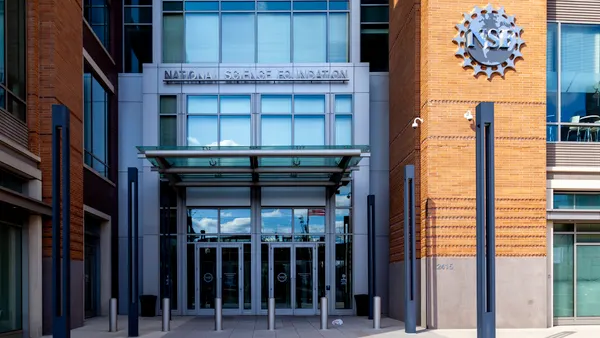Dive Brief:
- A new initiative from the Council of Regional Accrediting Commissions will examine four-year colleges and universities with graduation rates of 25% or lower, and two-year schools with 15% or lower graduation rates, more closely.
- The plan, which follows the collapse of ITT Tech for its alleged fraudulent recruitment and degree-granting practices, seeks to aid the federal government in preserving access to its $130 billion student tuition aid programs for institutions with stronger outputs in completion and employment.
- Critics say the scrutiny, and potential consequences, could cause irreparable harm to community colleges and historically black colleges nationwide.
Dive Insight:
Accreditation officials say that the increased attention is not designed to levy sanctions against schools falling below graduation rate standards, but to help warn them about potential sanctions that the U.S. Department of Education may hold against institutions with low metrics.
College leaders should be aware that there are no laws which ensure the continuing influence of accreditation agencies; only federal guidelines and agreements. If the federal government opts to withhold financial aid from low-performing institutions, there is no process of recourse or appeal outside of litigation. The government's biggest arguments are tax payer protection, and the idea that colleges have the obligation to recruit more wisely and to educate more vigorously, regardless of the preparation or individual circumstances of each student.












